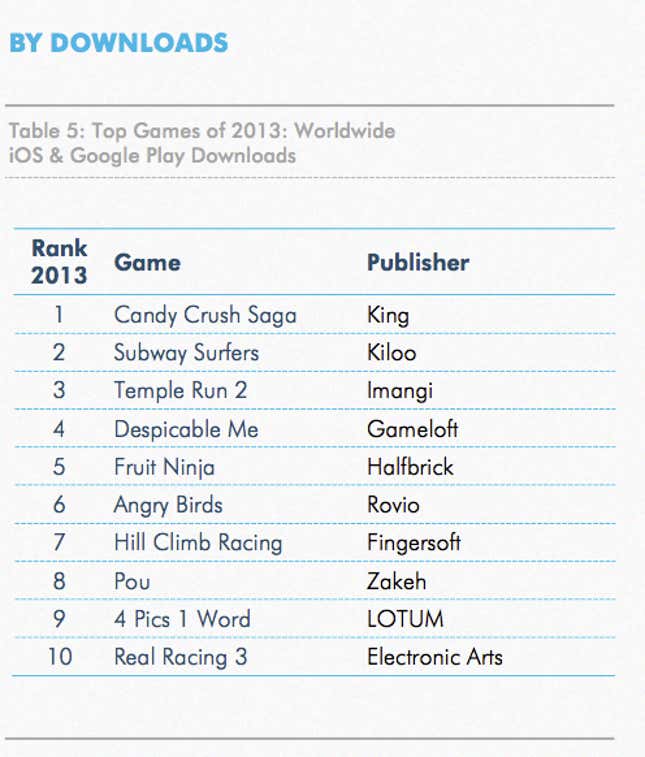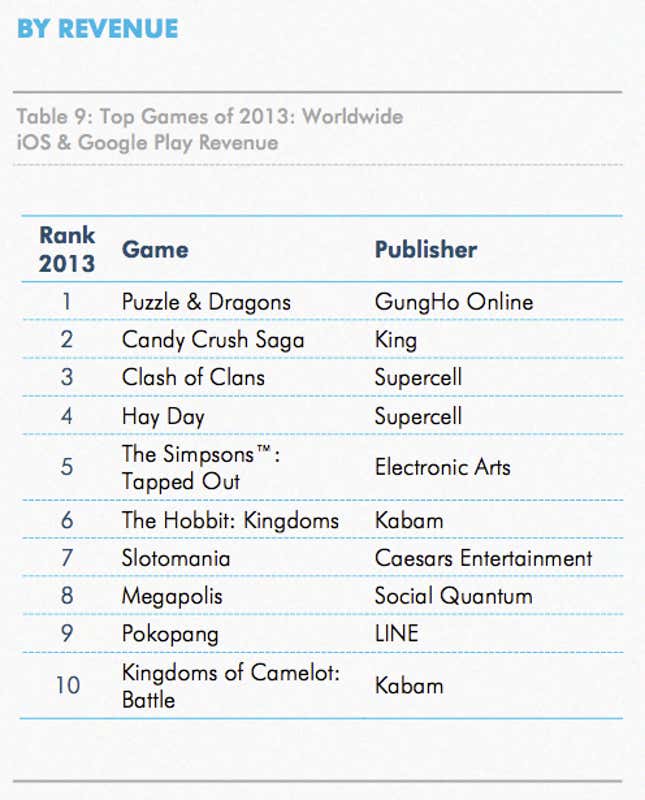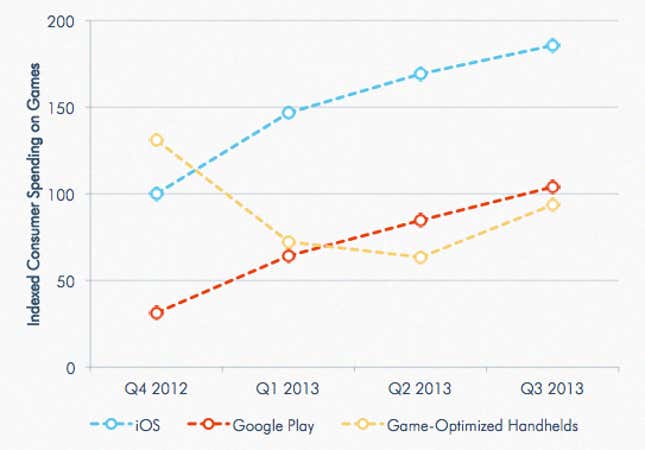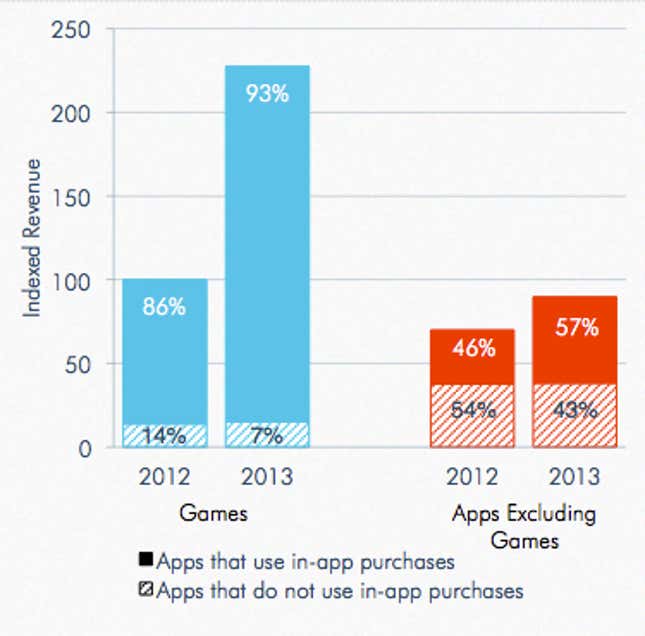With the possible exception of Pou, every one of the 10 most downloaded apps worldwide, when you include downloads on both Apple and Android devices, is a game. (Pou is a virtual pet, which is not strictly a game, but it’s also not not a game, depending on how you look at it.)

There’s no ambivalence in the top 10 by revenue: all of them are games too, according to a report of 2013 trends from App Annie, a research and analytics firm.

What’s more, people are spending more on games for mobile phones than they are on handheld gaming consoles such as the Playstation Vita and the Nintendo 3DS—and that’s not taking into account advertising revenue. It’s simply money spent buying the games or on in-app purchases.

Much of the monetary success of game apps can be put down to the “freemium” model, where the game itself is free but additional levels, virtual items, or special powers cost extra. Freemium apps accounted for 93% of game revenue in 2013, and total game revenue more than doubled over 2012, while it increased a lot less for non-game apps. As Quartz has reported before, freemium works because players try a game and get hooked before being asked to shell out. In 2013, nine out of 10 apps were free, according to analytics firm Flurry, making it hard for even the best paid apps to compete.

Not including games, the list of the 10 most downloaded apps of 2013 is led by social networks such as Facebook, Twitter and Instagram, and messenger apps including Skype, Line, WhatsApp and WeChat. YouTube is the only one in the list arguably not in either category (though some would call it a social network).
